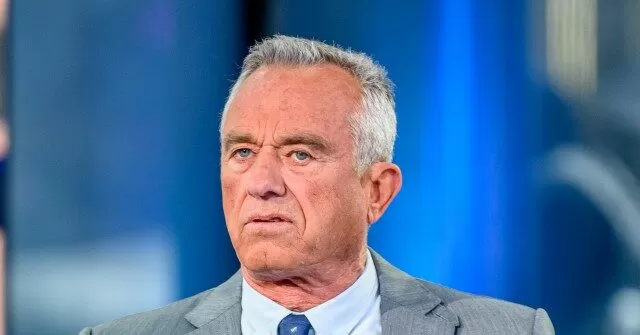Robert F. Kennedy Jr., the independent presidential candidate, is making waves with his recent statement on abortion. During a recent interview with Breitbart, Kennedy stated that he believes abortion, even at full term, should be left up to the mother to decide.
His stance on this controversial issue has received both criticism and support from various groups. While some see his statement as a progressive and empowering move for women, others argue that it goes against the fundamental values of human life.
Kennedy made it clear that he supports a woman’s right to choose what happens to her body, even if it means terminating a pregnancy at full term. He emphasized that the decision should be solely left up to the mother and that the government should not interfere in such a personal matter.
This statement has sparked a heated debate among voters, with many questioning Kennedy’s stance on abortion and what it means for his candidacy. However, Kennedy remains steadfast in his belief that the decision should ultimately be in the hands of the individual woman and not the government.
In a society where conservatives are pushing for stricter abortion laws and limitations, Kennedy’s stance is refreshing and empowering for women. He recognizes the complexities and challenges that come with motherhood and understands that it is not a decision to be taken lightly.
Kennedy’s statement may seem controversial to some, but it reflects a larger issue in today’s political climate – the ongoing battle for women’s reproductive rights. In recent years, there has been a growing push to restrict access to abortion, with some states even passing laws that criminalize the procedure.
The fact that Kennedy, a male politician, is openly advocating for a woman’s right to choose is significant. It sends a powerful message that men can and should be allies in the fight for women’s reproductive rights.
It is important to note that Kennedy’s views on full-term abortion do not mean he takes the issue lightly. In fact, he stated that he understands the gravity of such a decision and that it is not one that any woman would make lightly. However, he firmly believes that it should be the woman’s choice, and the government should not have a say in it.
Furthermore, Kennedy’s stance is not an isolated one. Many women’s rights advocates and organizations also believe that the decision should be solely up to the mother. They argue that laws and restrictions on abortion only serve to harm women and restrict their rights over their own bodies.
Moreover, Kennedy’s statement opens up a conversation about the reasons why a woman may choose to have a full-term abortion. In some cases, it may be due to serious health issues or fetal abnormalities that would result in an unviable or severely disabled child. By leaving the decision up to the mother, Kennedy recognizes that every situation is unique, and the choice should not be dictated by the government.
In the end, Kennedy’s view on full-term abortion is one that promotes individual liberty and empowers women to make decisions about their own bodies. It is a stance that aligns with the principles of a truly free and democratic society.
Some may see Kennedy’s statement as a political move to gain support from certain groups, but it is evident that his beliefs on this issue are genuine. He is willing to stand by his values, even if they may not align with popular opinion.
In a time where political leaders seem to be at odds over every issue, it is refreshing to see a candidate who is willing to take a stand and be transparent about their beliefs. Kennedy’s statement on full-term abortion may be controversial, but it is a reflection of his commitment to individual liberty and equality.
In conclusion, Kennedy’s stance on full-term abortion sends a powerful message that women’s reproductive rights should not be subject to government control. It shows that he is not afraid to tackle tough issues and stand up for what he believes in. As the election draws near, it will be interesting to see how Kennedy’s stance on this issue will impact his campaign and the larger conversation surrounding women’s rights.

